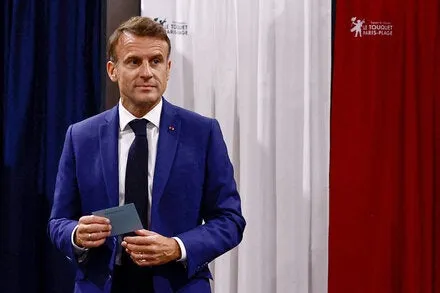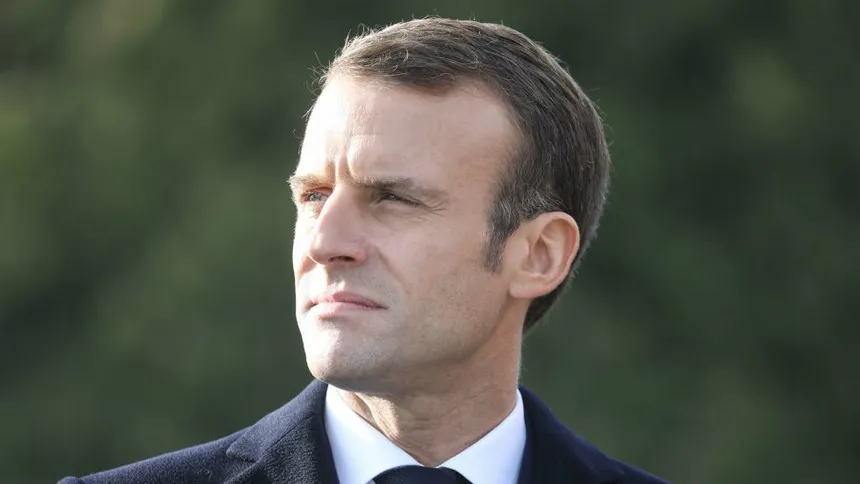French President Emmanuel Macron is facing unprecedented opposition to his harsh pension reforms, which have sparked widespread protests and ignited a months-long firestorm across the country. Despite the backlash, Macron has refused to back down and has instead chosen to engage with the public in an effort to salvage his beleaguered presidency.
Macron’s recent visit to the eastern region of France, bordering Germany, was part of a deliberate strategy to rehabilitate his image and build trust with the public. During his interactions with residents, the French president faced some hostility, with one man openly calling his government “corrupt.” However, Macron remained unfazed, arguing that the pension reform, which raises the retirement age from 62 to 64, is necessary for the long-term sustainability of France’s pension system.
Acknowledging that the change is “unpopular,” Macron expressed empathy with those who are struggling to adjust to the new conditions. “It doesn’t make anyone happy to work more and for longer,” he conceded, emphasizing the need for pragmatic solutions to France’s fiscal challenges. Undeterred by the criticism, Macron continued to engage with the crowd, shaking hands and listening to their concerns.
Meanwhile, the background hum of discontent and dissent remained palpable, with some hecklers calling for Macron’s resignation. Amidst the cacophony, a far-left legislator appeared at a wooden building company, sporting a gag bearing the number 49-3, a reference to the constitutional article allowing the government to push the pension reforms through parliament without a vote. The hard-left CGT union has announced scattered protest actions, while all major unions have planned nationwide protests for May 1 to coincide with International Workers’ Day.

French President Emmanuel Macron (Via Emmanuel Macron/Twitter)
As Macron battles to restore his reputation and consolidate public support, he will need to navigate an increasingly polarized terrain. His government’s ability to pass other planned policies may hinge on whether he can successfully dampen the flames of discontent and restore trust among the French people. The French president’s determination to engage with the public, even in the face of hostile dissent, is a crucial aspect of his strategy. By acknowledging the difficulties faced by the French people and listening to their concerns, Macron hopes to neutralize the opposition and find a path forward.
Despite the challenges ahead, Macron remains resolute in his pursuit of pension reform, believing it is essential for France’s long-term economic stability. His administration has repeatedly emphasized the need to address the nation’s fiscal woes, citing demographic changes and decreased birth rates as factors contributing to the pension crisis. The French president argues that raising the retirement age is a vital step towards ensuring that future generations are not saddled with unsustainable pension liabilities.
As Macron continues to grapple with the fallout from his pension reforms, it will be crucial to observe how effectively he can build bridges with the public and neutralize the opposition. His ability to do so may ultimately determine the success of his presidency and the trajectory of his legacy.











































